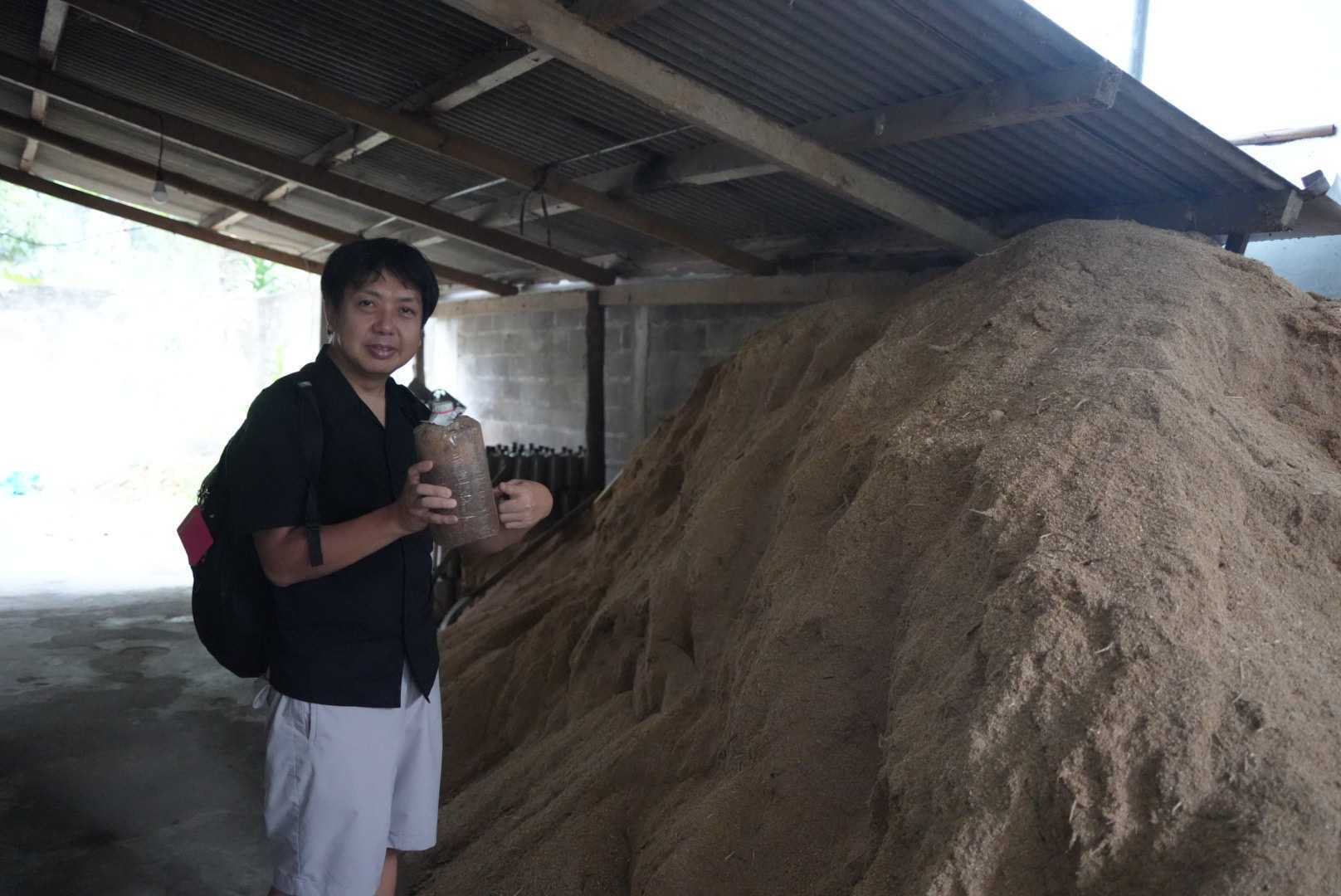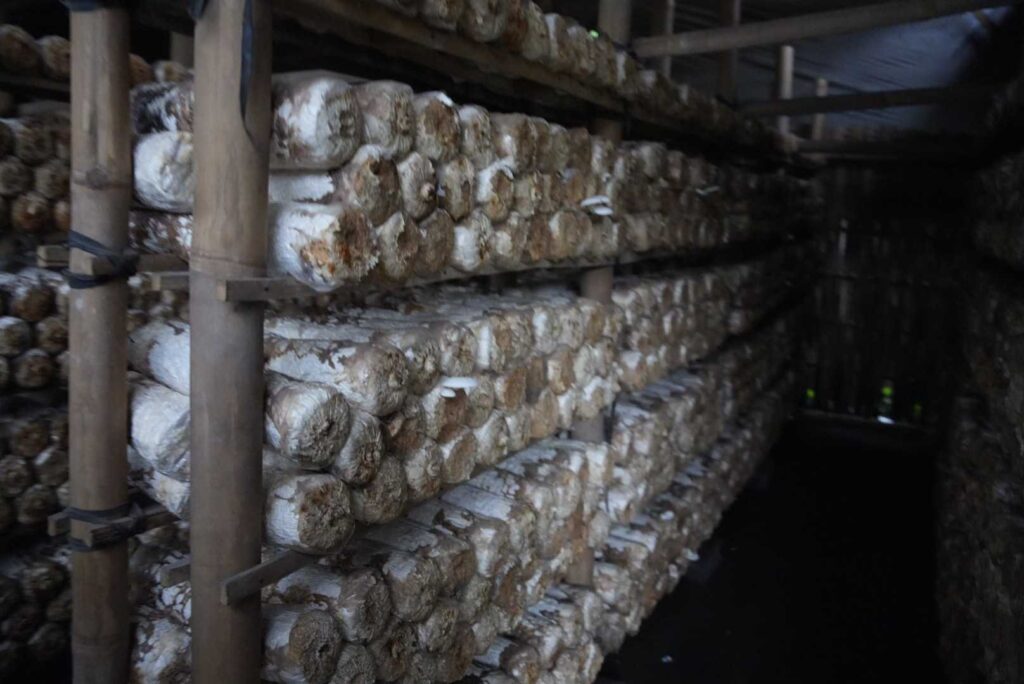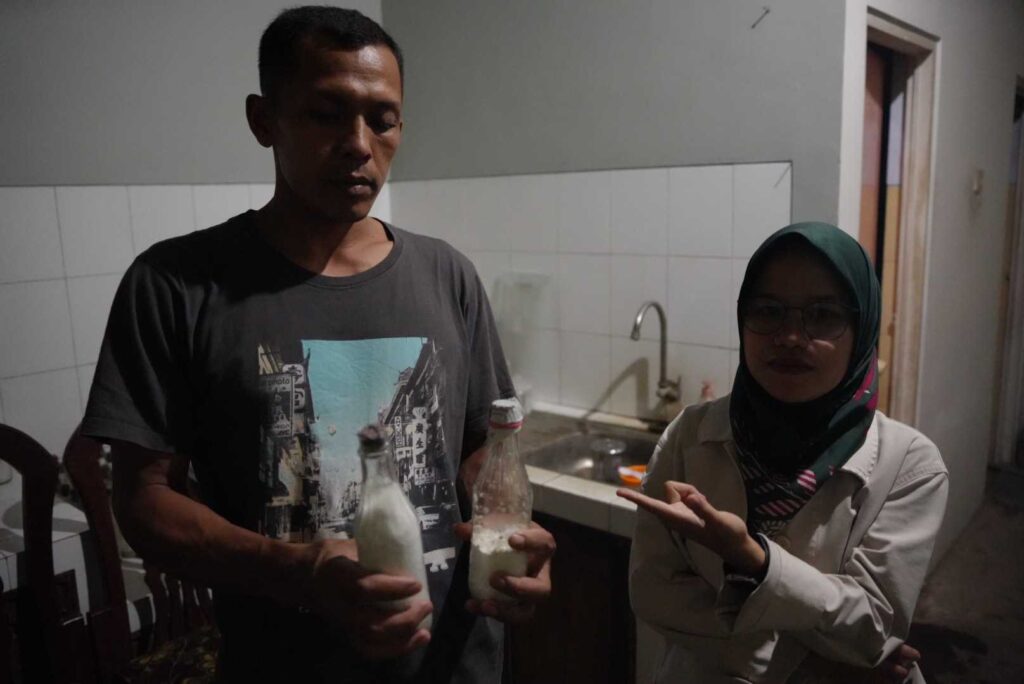
Organizing Ideas on the Potential Upcycling of Woody Biomass with Mushrooms in Indonesia
On November 14, 2023, a sitevisit was undertaken by Euglena Co. and ALBITEC in the Blitar region of Indonesia. This sitevisit marked a crucial step in exploring the innovative integration of microalgae in the field of mushroom production. The teams visited the Aldi Jamur Tiram facility, a notable mushroom production site in the region, with the objective of assessing and understanding the potential applications and benefits of microalgae in mushroom cultivation. This visit was instrumental in evaluating how science could enhance the efficiency, yield, and nutritional value of mushrooms, potentially revolutionizing agricultural practices in the area and setting a precedent for future sustainable farming solutions.

- Mushroom Production in Indonesia:
- Types and Production Levels: Indonesia is known for the production of Straw and Oyster mushrooms. However, the overall production and consumption levels of mushrooms in the country are relatively low.
- Statistics: In 2016, the production of oyster mushrooms in Indonesia was reported at 40,914,331 kg. There was a decline in 2017, but the production increased again in 2018, responding to rising demand, reaching 31,051,571 kg.
- Agaricus bisporus Cultivation: Another popular mushroom cultivated in Indonesia is the Agaricus bisporus, known for its requirements of specific temperature and humidity conditions for cultivation.
- Blitar Region and Aldi Jamur Tiram:
- Aldi Jamur Tiram's Production: The focus at Aldi Jamur Tiram is primarily on the production of Oyster mushrooms. They create their own mushroom beds, sterilize them, and then inoculate them with purchased fungal mycelium. The business model involves cultivating mushrooms with varying parameters such as changing the compost bed, selecting different mushroom species, and altering the growing conditions to achieve diverse final products. This approach offers potential for addressing social issues in a sophisticated manner while maintaining economic viability.
- Application of Microalgae in Mushroom Production:
- The collaboration between local mushroom production company and ALBITEC could explore the potential of using microalgae in mushroom cultivation. Microalgae's role could be in enhancing the nutritional content of the mushroom beds or improving the environmental conditions for mushroom growth, thereby augmenting the quality and yield of the mushrooms.
- Social and Economic Implications:
- Implementing innovative techniques like integrating microalgae in mushroom cultivation can address social challenges such as food security and sustainable agriculture. Additionally, it can create new economic opportunities in regions like Blitar, fostering community development and providing alternative livelihoods to traditional farming.
- Further Research and Development:
- Continued research and development in the integration of microalgae and mushroom production could lead to more efficient and sustainable agricultural practices. This, in turn, could have a significant impact on both local and national scales in terms of food production, economic growth, and environmental sustainability.

[reference] ALBITEC and Microalgae in Indonesia:
Company Overview:
ALBITEC, or Alga Bioteknologi Indonesia, is recognized as the largest microalgae producer in Indonesia, emphasizing sustainability and innovation in the biotech sector.
Founding and Mission:
Founded in 2018 by Falasifah, Nazir, and Seto, ALBITEC aims to leverage the productivity of algae to address food and fuel needs, thereby improving the environment, economy, and quality of life.
Microalgae Cultivation:
The company employs continuous cultivation processes for the growth of vast quantities of microalgae, which has potential applications in various sectors.
